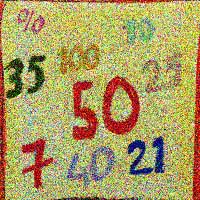My younger sibling would be turning 50 this year. I wonder what would have been explored in the last half century had that sibling survived?
I think of what pleasures and pains would have been created if I had always had the youngster beneath me in the family. I wonder how my own life experience would have been altered by being the big brother?
As a four year-old, my rather large bedroom in the eaves of the house I grew up in was ready to be divided for the coming of the newest member of our household. I clearly remember how my parents began to manipulate my thinking in preparation for the commencement of the building works. It was ‘going to be fun’ having a smaller room. I’d ‘get to choose my own bedspread’ – I’d even be allowed one that represented the cockpit of a racing car, if I’d ‘just give up [my] protests, see sense and take a positive view’. Of course, being four, I didn’t really understand what was going on and I certainly didn’t understand why my older sister was getting to keep a room of her own with all of her stuff and things in it. There would be no consequence of reduced space for her. I was very resistant and, although I say it myself, rightly so!
Skip forward a few months and a different message was circulating in my life. Unseen, but not unfelt by me, my mother had lost the baby that was due in the family. Suddenly my peace was being shattered by another direct assault on my space: apparently there was someone already in existence who might be coming to share my room. The audacity! An adopted child – whatever that meant. We were now expecting a cuckoo!
As it happens, the cuckoo-child never arrived. But as time followed on I was next introduced to the idea of emigration to Australia, where we would all ‘get new lives’.
The changes seemed to mount and I really didn’t like all of this unsettled social soup that we were living in. Most noticeably, my mother’s health began to deteriorate – her body quietly rejecting something. Loss in her was transformed into chronic painful illness. By the time a full seven years had passed from the loss of the child we were finally moving – but it wasn’t across the globe. Leading up to this move, the basement of our house, which my ‘aunt’ lived in, was converted into a self-contained flat. A new bathroom was created on the ground floor, and then the three upper floors that had been my family home were split to form yet more self-contained properties. My ‘aunt’, a casualty of this change, moved out. It was a personal loss.
On the day before the morning I started secondary school we moved to a small house away from my friends. It seemed that for seven years one loss became another. Loss transformed until it couldn’t be clearly seen what was actually missing anymore.
Imaginations and dreams gave way to decomposition as I watched my father retreat into what I would later realise was depression. My once-safe comforting mother had, by then, almost totally dissolved into pain and anger. When both my parents were in their final phases of life I dared to fully and directly bring up the loss of the youngest member of our family – but it was ‘too late’, too hidden, ‘hardly remembered’ they said. My child that had sought the adult answers continued to be denied the required explanations, but therapy helped give the events a narrative by which to understand the family loss, pain, anxiety and depression.
Having permanently returned to my home city this year, the ‘golden’ anniversary of all that loss, I allow myself to wonder what different path there might have been if that younger sibling of mine had made it though. RIP Little One.
Much love,
Your brother
Duncan challenges you to …
… reach out to a sibling whatever your shared history.
All rights reserved © Copyright Duncan E. Stafford 2022. Unauthorized use and/or duplication of this material without express and written permission from the author of this post is strictly prohibited. (This article was originally published in 2019 as part of the Three Men with a Blog project.)
All character-based realisations contained in this post are either of a fictional nature or have been derived from heavily disguised, consensually given information.
 Living life by numbers … and the midlife crisis
Living life by numbers … and the midlife crisis